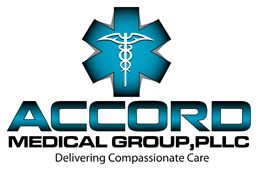Nocturia - Excessive Nighttime Urination
Introduction
Anatomy
Causes
There are many causes of nocturia including, urinary tract infections, prostate problems, certain medications, diabetes, kidney failure, heart failure, liver failure, pregnancy, and sleeping disorders, such as sleep apnea. Sleep apnea is a condition that causes people to stop breathing during sleep and then gasp for air. Nocturia can also result from drinking too much fluid right before bedtime.
Symptoms
Diagnosis
Treatment
Prevention
Am I at Risk
Risk factors for nocturia:
_____ The risk of nocturia increases with age.
_____ Certain medical conditions can cause nocturia, including urinary tract infections, prostate problems, diabetes, kidney failure, heart failure, and liver failure.
_____ During pregnancy, women may experience nocturia because of pressure on the bladder and hormonal changes.
_____ Sleep apnea, a sleeping disorder, is associated with nocturia.
_____ Certain medications, including diuretics, lithium, cardiac glycosides, and others can contribute to nocturia. You should make a list or bring all of your medication bottles to your doctor to review. Do not stop taking any medication without your doctor’s approval first.
_____ Drinking too much fluid right before bedtime increases the risk of nocturia.
_____ Drinking coffee and drinks that contain caffeine, carbonated drinks such as soda pop, and alcohol increase the risk of nocturia.
Complications
Nocturia can contribute to significant sleep loss. Overtime, sleep loss can lead to daytime drowsiness and decreased functioning. Sleep is vital for good health and functioning. You should contact your doctor if you experience nocturia and disrupted sleep.Advancements

Copyright © - iHealthSpot Interactive - www.iHealthSpot.com
This information is intended for educational and informational purposes only. It should not be used in place of an individual consultation or examination or replace the advice of your health care professional and should not be relied upon to determine diagnosis or course of treatment.
The iHealthSpot patient education library was written collaboratively by the iHealthSpot editorial team which includes Senior Medical Authors Dr. Mary Car-Blanchard, OTD/OTR/L and Valerie K. Clark, and the following editorial advisors: Steve Meadows, MD, Ernie F. Soto, DDS, Ronald J. Glatzer, MD, Jonathan Rosenberg, MD, Christopher M. Nolte, MD, David Applebaum, MD, Jonathan M. Tarrash, MD, and Paula Soto, RN/BSN. This content complies with the HONcode standard for trustworthy health information. The library commenced development on September 1, 2005 with the latest update/addition on February 16, 2022. For information on iHealthSpot’s other services including medical website design, visit www.iHealthSpot.com.

